TOLL OF CONFLICT
Humanitarian needs in DRC escalate amid rising violence, says Red Cross

The International Committee of the Red Cross has sounded the alarm over the impact of escalating violence in the eastern part of Democratic Republic of the Congo where fresh fighting has erupted.
The humanitarian crisis in Democratic Republic of the Congo (DRC) has taken a drastic turn for the worse in the past months amid armed conflict and general violence.
“DRC has been going through almost 30 years of episodes of conflicts and this current one is clearly a major one, with numbers going beyond what anyone could imagine,” said François Moreillon, head of the International Committee of the Red Cross (ICRC) delegation in the DRC.
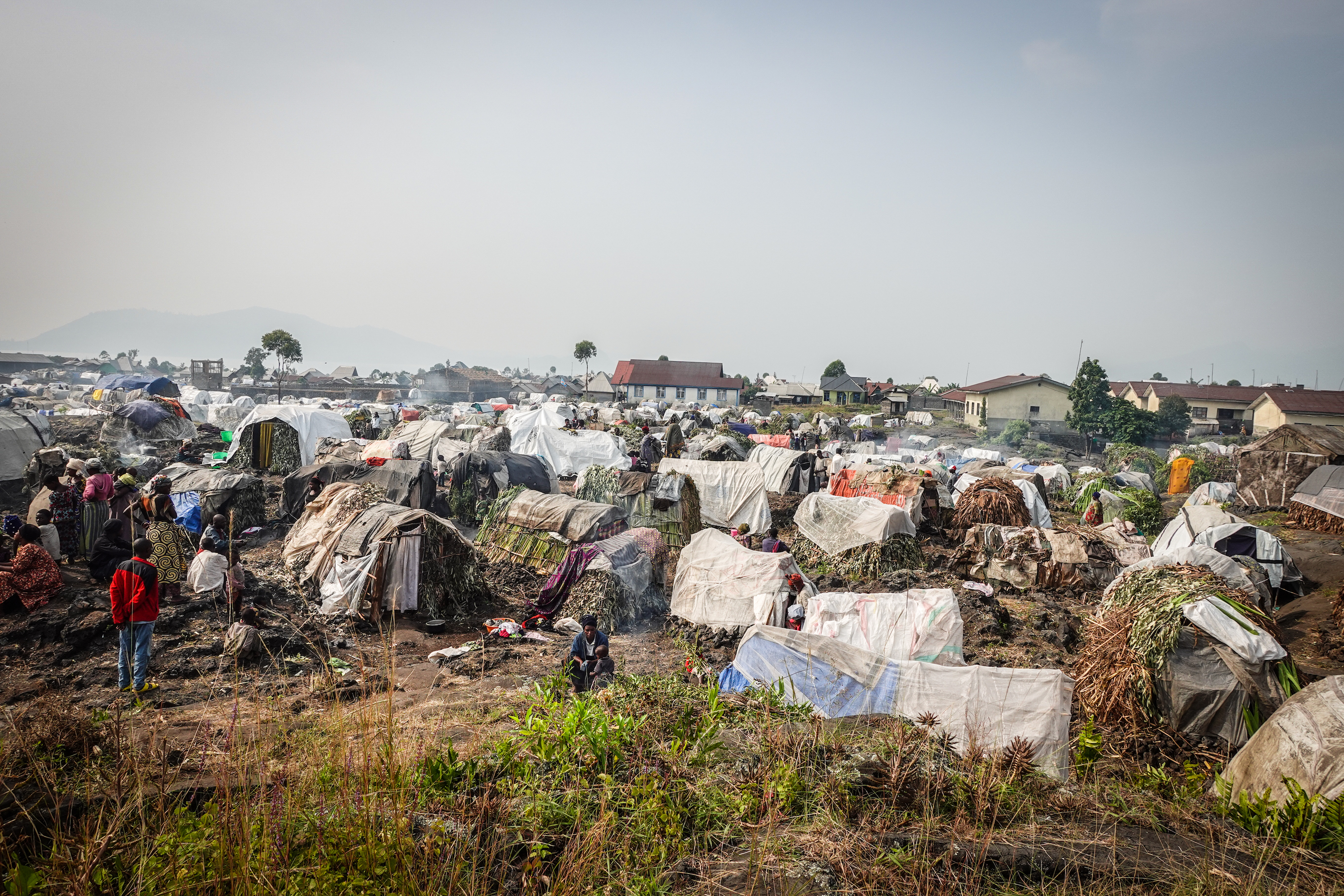
With a total of seven million people displaced in the country, in 2023 the DRC had the highest number of internally displaced yet recorded, according to UN figures. At least 5.5 million people are displaced in eastern DRC, including 2.5 million in North Kivu province alone. (Photo: Supplied)
According to UN estimates, more than 25.4 million people out of a population of 113.6 million will need aid in 2024.
“The humanitarian sector is unable to cope with the level of suffering that we are witnessing in the field. We will not be able to continue addressing the needs of the most vulnerable if more funding is not coming our way… this is valid for the ICRC but also the whole humanitarian sector,” said Moreillon.
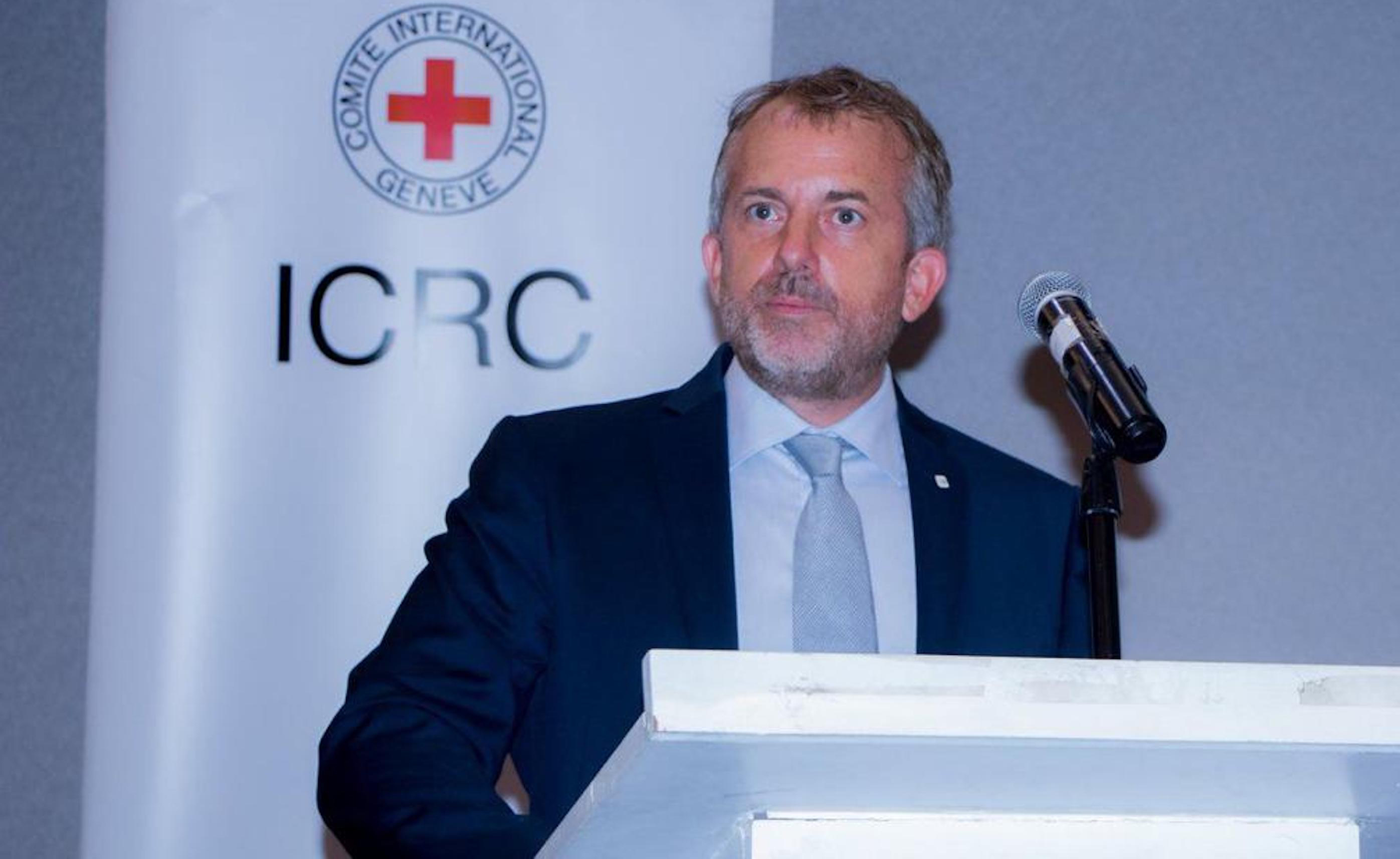
François Moreillon, head of the International Committee of the Red Cross delegation in Democratic Republic of the Congo. (Photo: Supplied / ICRC)
State of healthcare
The violence is taking a huge humanitarian and medical toll, with death and injury a daily reality.
The ICRC-supported CBCA Ndosho Hospital in Goma has noted an uptick in patients. The conflict is also obstructing the delivery of medicines and other medical supplies to health facilities.
“In 2023, over 1,000 people with weapon wounds – including nearly 200 women and 40 children under 15 – received treatment in North Kivu hospitals supported by the ICRC. That number is 60% higher than the previous year’s total, and the total for the last quarter of 2023 is 112% higher compared to the same period in 2022,” read the report.
“In January and February 2024, the hospital admission rate for wounded patients was double that in 2023.”
Abdou Rahmane Boubacar Sidibé, an ICRC surgeon working at CBCA Ndosho Hospital, said there was a high rate of traumatic amputation and an increase in blast injuries.
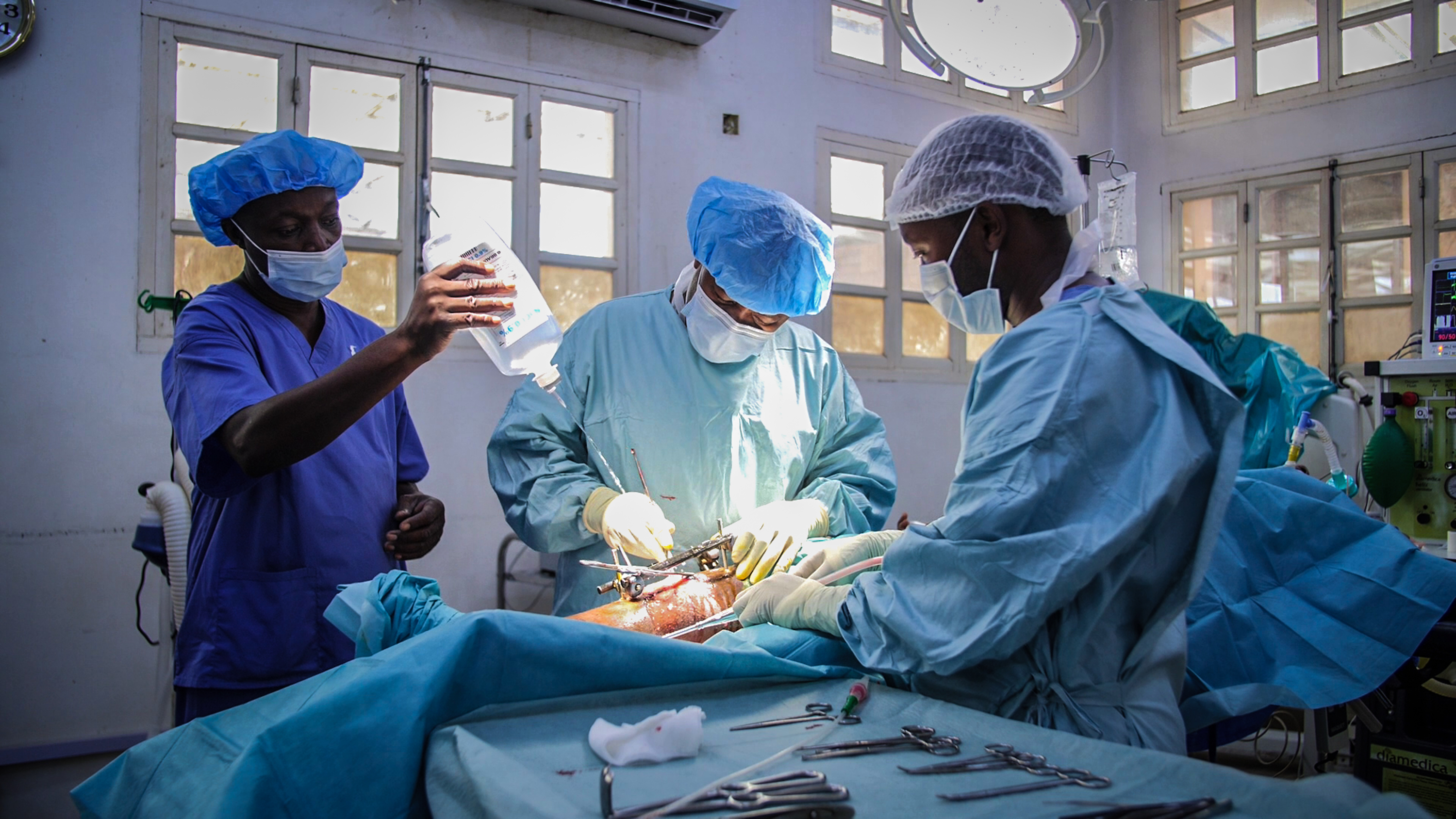
In early 2024, the ICRC observed that 40% of patients admitted to CBCA Ndosho Hospital had been injured by heavy artillery. Abdou Rahmane Boubacar Sidibé, an ICRC surgeon working at the hospital, said many patients needed complex care, with a high rate of amputation and an increase in blast injuries. (Photo: Supplied / ICRC)
Over 75% of patients admitted to the hospital were injured by firearms, while the proportion of blast injuries rose from 11 cases in 2022 to 77 cases in 2023.
From 2022 to 2023, abdominal and thoracic surgeries increased by 86% and 322% respectively, highlighting the severity of the injuries and the complexity of the procedures.
Garuka Furaha, who was displaced in the town of Sake for three months and admitted to CBCA Ndosho Hospital in February this year, said: “A piece of shrapnel hit my right eye and injured my shoulder. I don’t know where my other children are. I only know that my 16-year-old daughter was also wounded in the neck. I consider myself lucky even if I have only one eye left, because some are dead and others have lost limbs.”
In early 2024 the ICRC observed that 40% of patients admitted to this hospital had been injured by heavy artillery.
“The level of violence was so quickly increasing that we had to go for a third team. Initially, our capacity was for 40 beds and now we are at 140 beds,” said Moreillon.
“What is of great concern is that approximately 40% to 45% of the wounded are civilians.”
Sexual violence escalation
Sexual violence in the context of armed conflict is a long-standing and persistent problem in the DRC.
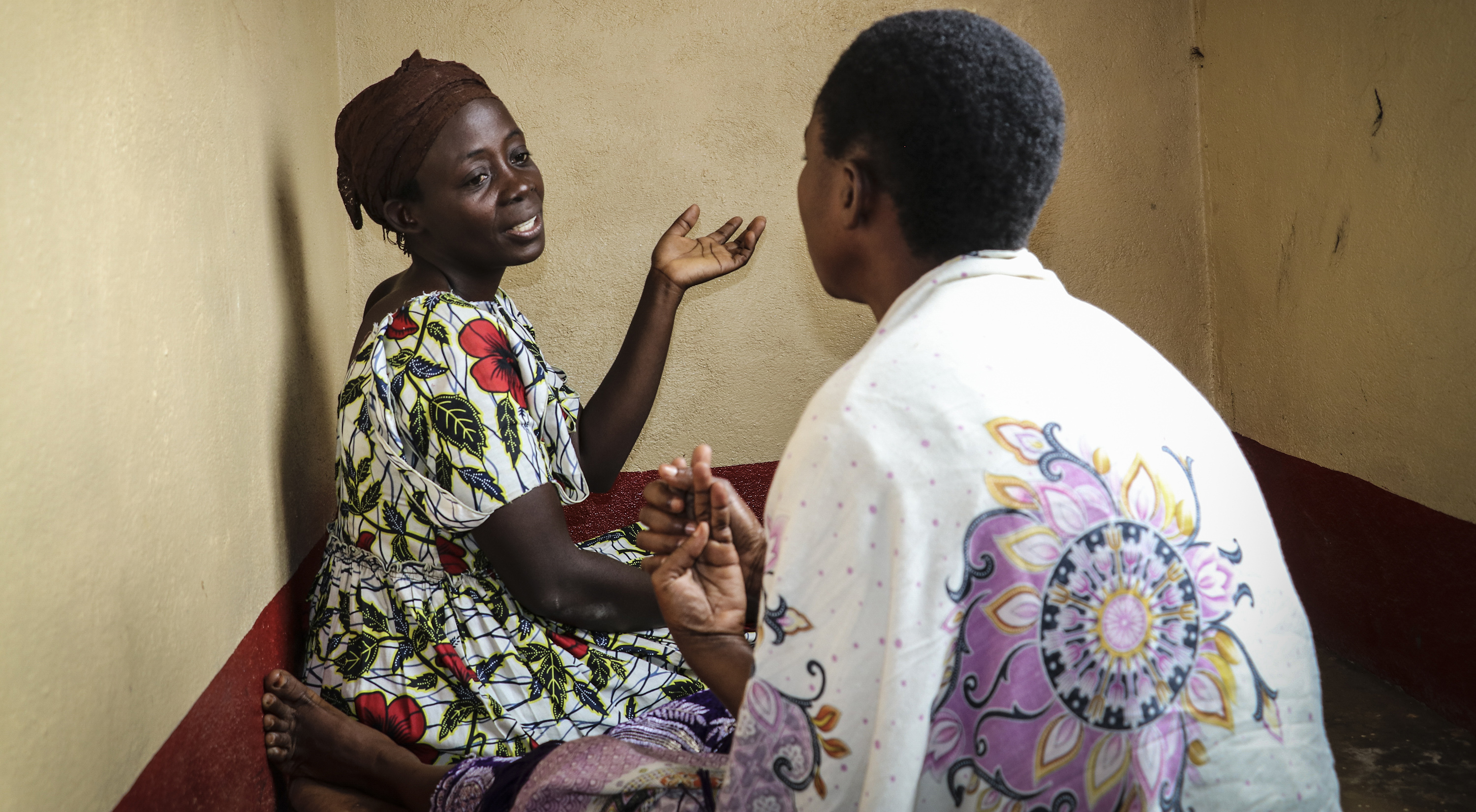
A psychosocial worker and a victim of violence during a counselling session in the women’s shelter of the city. The ICRC supports women’s shelters in the two Kivus, in which victims of violence are taken care of. (Photo: Supplied/ ICRC)
Between 2021 and 2022 the number of reported cases of gender-based violence doubled from 40,000 to over 80,000. In the first three months of 2023, more than 31,000 cases were reported.
“The figures we collected through the cluster on sexual violence for North Kivu show that between January and February this year, there have been 1,000 new cases, which would present an increase of 80% compared to last year, and that probably it is only the tip of the iceberg,” said Moreillon.
Justine*, a rape victim in North Kivu, said: “Because of the war which has been going on for too long in our region, rape has become an everyday occurrence. […] The other women and I, who take the same route to go to the fields, have decided to always carry packets of condoms with us: if we fall into the hands of rapists, we humbly ask them to use a condom.”
The ICRC is responding through an integrated approach which includes health and psychological responses, frequently reminding the parties of the conflicts of their obligation to prevent sexual violence, which constitutes a grave breach of international humanitarian law, and prosecute and investigate such crimes after they have occurred, said Moreillon.
Record number of people displaced
With ongoing conflict and escalating violence, the DRC is facing one of the largest internal displacement and humanitarian crises in the world.
According to the UN, in 2023 the country had the highest number of internally displaced people ever recorded — seven million people.
“Between October (2023) and April (2024), we accounted for 800,000 new displaced people, and these often are displaced not only once, but they may have been displaced as many as four times, so you can imagine the level of vulnerability they are in,” said Moreillon.
Imelde Kavira, who has been displaced for over a year in Oïcha, North Kivu, said: “I fled with my grandsons and other children who had lost their parents in the fighting. There are 20 of us living in the same house, which I rent for 24,000 Congolese francs ($10) a month.
“I have no work. I’ve already been told to move out because I can’t afford the rent. It’s hard to find food and drinking water or get medical care. We are suffering terribly.”
Moreillon said that despite their best efforts, humanitarian actors cannot respond to all needs, explaining that in Ituri there are about 170,000 internally displaced people in camps that have not received food for the past four months.
“So that raises immense concern about the living conditions as well as the kids who are facing malnutrition and death,” he said.
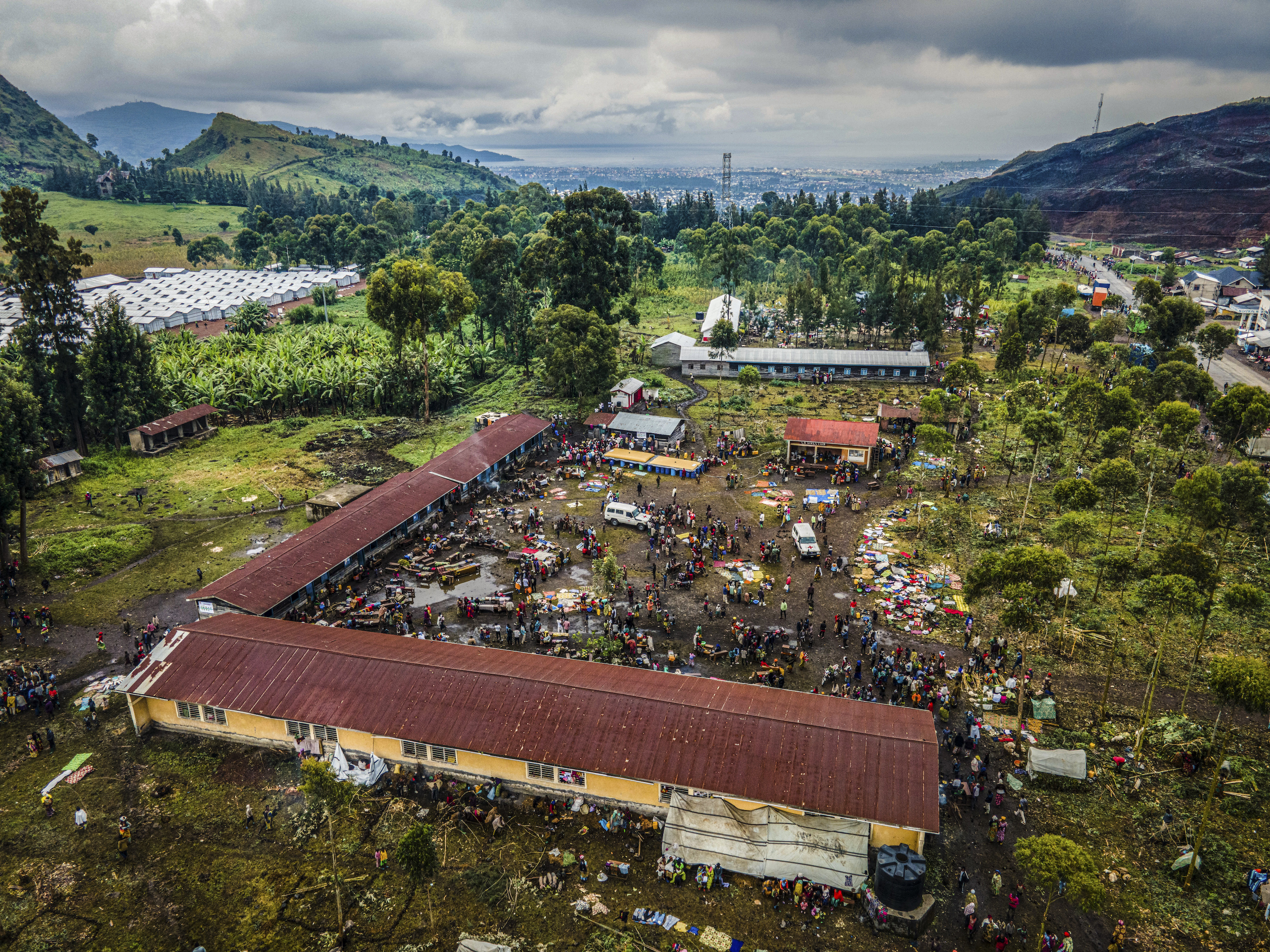
North Kivu province, Kanyaruchinya, 10km from Goma: Displaced people have taken refuge in a school used as a makeshift camp. (Photo: Supplied / ICRC)
As people flee the violence, thousands of families are torn apart. Across the region, and especially in North Kivu, many people – in particular, unaccompanied or separated children – need help to find and get in touch with their families.
Over the last three years, about 2,400 individuals annually have reached out to the ICRC seeking help in finding their relatives, with about 80% of them being children.
The ICRC and DRC Red Cross volunteers conduct thorough tracing efforts, encountering challenges such as insufficient information, complex geography and unstable security conditions in many regions.
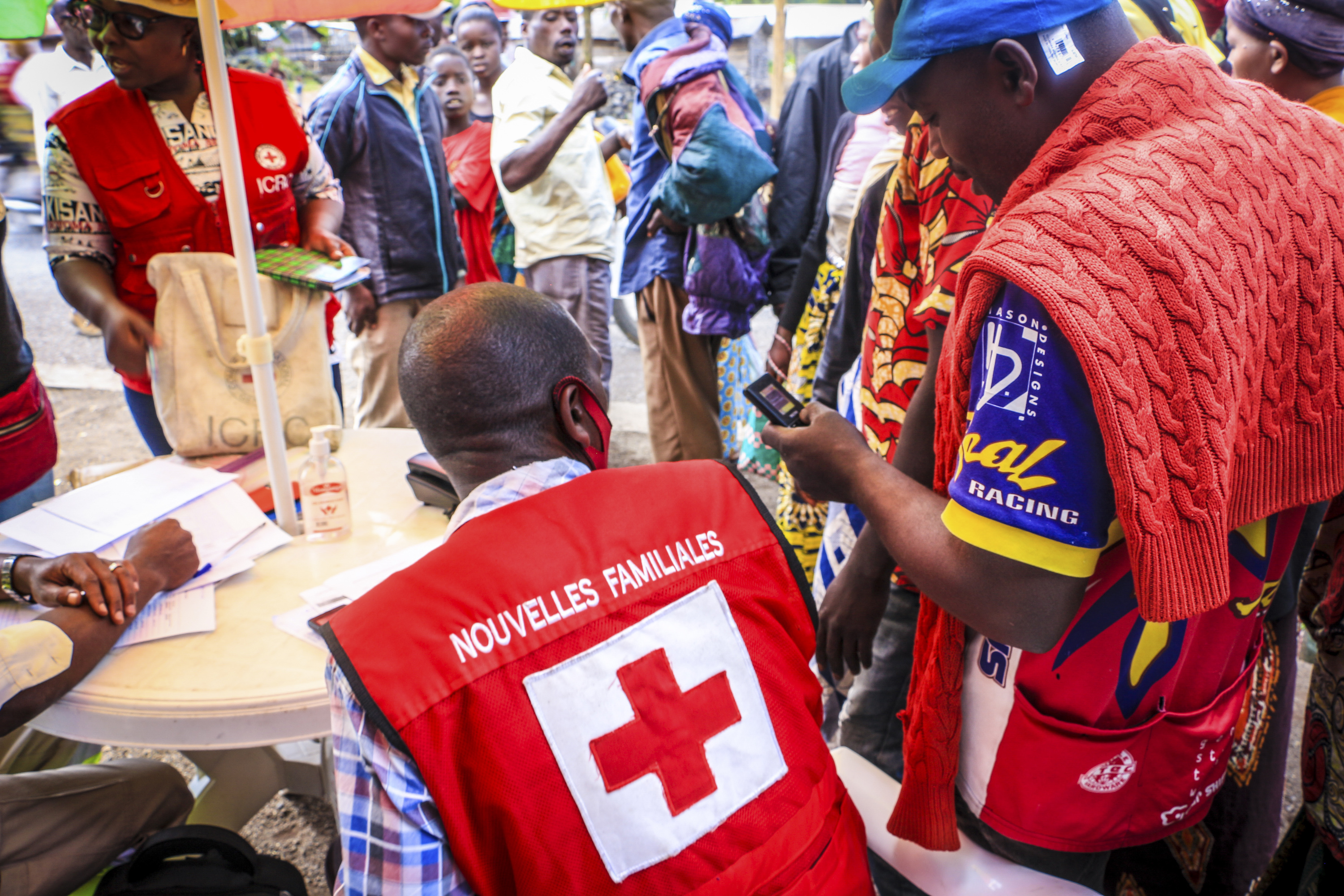
North Kivu province, Kanyaruchinya, 10km from Goma: To help internally displaced people get news of their loved ones, the ICRC has set up telephone facilities. (Photo: Supplied / ICRC)
Faustin Hakiza, a Red Cross volunteer in Rutshuru territory, North Kivu, said: “Some children come to the telephone booth. They look sad, worried, desperate. Many have memorised their parents’ phone numbers or written them down on scraps of paper, if they have no adult there to help them. Very often, it is only when they hear their parents’ voices that they smile again, relieved at last of the uncertainty and the fear of never seeing their families again.”
Child soldiers on the rise
There has been a marked increase in the recruitment and use of children in the conflicts, and this is a source of great concern, said Moreillon.
“If those trends are increasing, it’s because of the intensity of the conflict. And you can expect that those children are being directly exposed to a situation of fighting, and if they’re not killed, it will dramatically affect their development,” he said.
The report highlights that children are recruited into armed forces both forcibly and voluntarily, often as a means of survival or defending their communities. This lifestyle results in numerous hardships such as injuries, lack of education and healthcare, legal issues, psychological distress and social rejection.
A forgotten crisis
While the crisis in DRC is far from the only one being forgotten, the magnitude of that crisis necessitates an urgent response and more funding, said Moreillon.
“As much as you can understand that the world is lacking resources with competing crises, there are always solutions, and you can always find means to bring this solution as a reality,” he said.
Moreillon said any society that experiences what DRC is experiencing would carry scars and take generations to overcome.
“For many, they have known nothing but the war.
“It has been over 30 years of conflict in this region, and many people have never enjoyed the sound of peace. They have known only the sound of guns and the suffering of losing a family member,” he said.
“Think of those families that are going through hell… think of them as yours, and maybe you will be able to find a solution.” DM

















Yet our government prefers to openly support terrorist organisations in the middle east and ignore terrorists in Africa